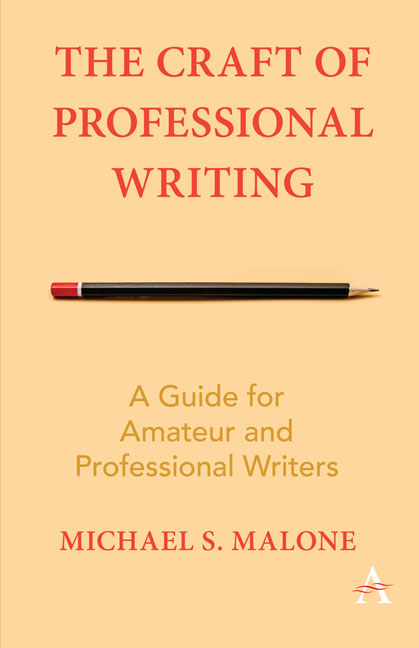Book contents
- Frontmatter
- Dedication
- Contents
- Introduction
- Part One Basics
- 1 Gathering Information
- 2 Words, Sentences and Paragraphs
- 3 Narrative and Composition
- Part Two Corporate Careers and Disciplines
- Part Three Writing Careers in Media
- Part Four The Work of Professional Writing
- Further Reading
- Suggested Assignments
- Index
3 - Narrative and Composition
from Part One - Basics
- Frontmatter
- Dedication
- Contents
- Introduction
- Part One Basics
- 1 Gathering Information
- 2 Words, Sentences and Paragraphs
- 3 Narrative and Composition
- Part Two Corporate Careers and Disciplines
- Part Three Writing Careers in Media
- Part Four The Work of Professional Writing
- Further Reading
- Suggested Assignments
- Index
Summary
Sounds are senses.
Words are emotions.
Sentences are thoughts.
Paragraphs are ideas.
Narratives are conclusions
A narrative is a collection of words, sentences and paragraphs that have a structure, a direction, and a start and a finish. It also has a point— a lesson or a piece of enlightenment or an increase in knowledge, or it advances a conversation or offers an explanation of an event. If your writing doesn't have that point; if it doesn't make some well- thought- out statement, then you are doing something wrong.
A question commonly asked by amateur writers is: Do you have to know what the conclusion will be before you get there? No, you do not. And even if you do have such a conclusion in mind, you may find that in the course of developing your narrative its logic will take you somewhere else. But what you do need to know is that you will reach a conclusion. That you will know that conclusion when you get there. And that the narrative won't be finished until you have arrived there.
Types of narrative—Narrative, being the basic form of creative writing, comes in a multiplicity of forms, fiction and nonfiction, and is as diverse as human culture. Here's a short list:
Essays
Letters and diary entries
News articles
Blogs
Columns and editorials
Nonfiction books
Memoirs
Biographies and autobiographies
Anecdotes and miscellanea
Songs
Poems
Short stories
Novels and novellas
Screenplays
Dramatic plays
Books for musicals
Marketing communications, which includes:
a. Press releases
b. Advertising
c. Reports
d. Annual reports
e. Speeches
Research and academic papers
Note the sheer range of narrative forms. Yet all share the characteristics of narrative, not least that they have a direction and a conclusion. Most people who are not professional writers impute more diversity to these forms than they really have and are often astonished that professionals can write well in multiple narrative forms. Professionals know that all real writing springs from the same source and requires the same skills and are only differentiated by the rules by which they operate.
- Type
- Chapter
- Information
- The Craft of Professional WritingA Guide for Amateur and Professional Writers, pp. 23 - 26Publisher: Anthem PressPrint publication year: 2018



